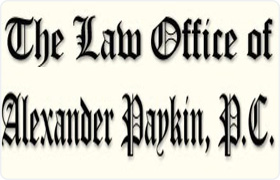Locust Valley Real Estate Other Lawyer, New York
Sponsored Law Firm
-
 x
x

Click For More Info:
-
The Law Office of Alexander Paykin, P.C.
350 5Th Ave Fl 59 New York, NY 10118» view mapReal Estate Reliable. Dependable. Accessible.
Whether you are buying, selling, renting, or refinancing your house, our experienced legal team will strongly advocate for you at each and every step of the process.
800-747-9261
Includes: Commercial Leasing, Commercial Real Estate, Condominiums, Conveyancing, Housing & Urban Development, Premises Liability, Residential Real Estate, Title Insurance
Edward A. Andrews
Commercial Real Estate, Estate Planning, Family Law, Divorce & Family Law
Status: In Good Standing Licensed: 26 Years
Colton P. Wagner
Wills, Trusts, Gift Taxation, Commercial Real Estate
Status: In Good Standing Licensed: 75 Years
Peter G. Zavatsky
Commercial Real Estate, Foreclosure, Credit & Debt, Bankruptcy
Status: In Good Standing Licensed: 47 Years
 Alexander Paykin New York, NY
Alexander Paykin New York, NY AboutThe Law Office of Alexander Paykin, P.C.
AboutThe Law Office of Alexander Paykin, P.C. Practice AreasSpecializations
Practice AreasSpecializations
